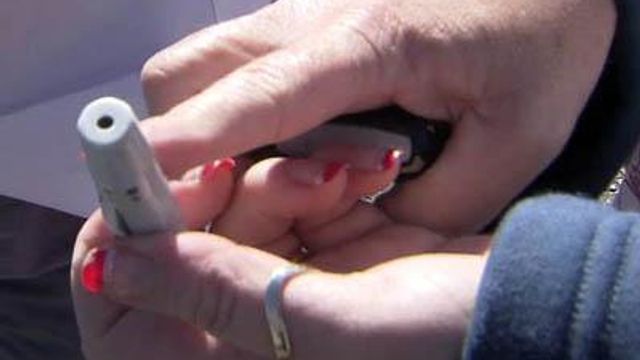State cites assisted living center for lack of infection controls
State regulators have cited a Wayne County assisted living center where a hepatitis B outbreak has killed five people for violating residents' rights by not using proper infection control measures.
Posted — UpdatedFive Glen Care residents who have died since August had hepatitis, while three other residents contracted the illness but survived, according to state officials. The deceased ranged in age from 63 to 83.
According to the Division of Health Service Regulation report, Glen Care staff had complained that, until mid-October, there was only one or two lancing devices for blood-glucose testing that had to be shared by all patients. Staff members told regulators that they weren't sure if the devices were cleaned before and after each use and noted that a staffer once was almost stuck by a needle that has been left in one of the devices.
State and local health officials began investigating the hepatitis outbreak in mid-October. Staffers told regulators that lancing devices labeled with residents' names showed up around that time.
The report released Tuesday also noted that at least three medication technicians hadn't received training on how to care for diabetic patients, including checking their blood-glucose levels.
In-service training provided to Glen Care staff didn't include information on universal precautions to prevent the spread of infections, according to state regulators, who reviewed the materials that a nurse said she used to train staffers. The nurse faxed a letter to regulators on Nov. 1 stating that she had found some additional training materials in her car trunk, and the last slide in the presentation was labeled "Universal Precautions."
Jeff Horton, director of the Division of Health Service Regulation, said Tuesday that Glen Care was allowed to remain open because it has already taken action to address some of the issues that regulators found.
"Some folks think, if there's been a death in a care facility, regardless of what kind of facility it is, the first reaction, I think, is to consider shutting it down," Horton said. "But if the facility has put corrective measures in place and those measures can be sustained, then we typically find it's in the best interest of the remaining residents to let them remain there because it is their home."
More than 50 residents remain at Glen Care.
Glen Care officials have denied any responsibility for the hepatitis outbreak, suggesting it was caused by people coming in from outside or by residents sharing drinks or having sex. Medical technicians said they never told state investigators that they used the same glucose monitors on different patients.
Hepatitis B is a contagious virus that can cause severe liver problems, and it is typically transmitted by exposure to blood or body fluids. Symptoms include fever, extreme fatigue, loss of appetite, vomiting, dark urine and yellowish skin.
The Division of Health Service Regulation has already issued a six-point corrective plan to Glen Care for infection control. The facility must appoint a staff member to coordinate infection-control measures at the facility, provide staff training on proper procedures and have a registered nurse or pharmacist observe blood-glucose monitoring of patients at least once a week.
"We made certain that the facility made immediate corrective measures to address the problems that we found," Horton said. "They had trained their staff, and once we felt that the residents were protected, then we allowed the facility to continue operating."
Public health officials also recommended that Glen Care store glucose meters in residents' rooms, disinfect them after each use and switch to single-use needles for the devices.
• Credits
Copyright 2024 by Capitol Broadcasting Company. All rights reserved. This material may not be published, broadcast, rewritten or redistributed.





